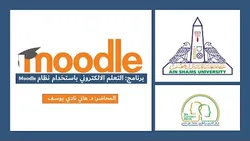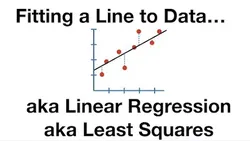
Linear Regression for Business Statistics 
Regression Analysis is a powerful tool used in Business Statistics to forecast and predict outcomes. It is used in a variety of applications to gain insights from data and make informed decisions. Linear Regression is a key component of this process. ▼
ADVERTISEMENT
Course Feature
![]() Cost:
Cost:
Free
![]() Provider:
Provider:
Coursera
![]() Certificate:
Certificate:
Paid Certification
![]() Language:
Language:
English
![]() Start Date:
Start Date:
3rd Jul, 2023
Course Overview
❗The content presented here is sourced directly from Coursera platform. For comprehensive course details, including enrollment information, simply click on the 'Go to class' link on our website.
Updated in [March 06th, 2023]
What skills and knowledge will you acquire during this course?
Skills and knowledge that will be acquired during this course include:
- Understanding and applying the Linear Regression Model
- Building and estimating a Regression Model using Excel
- Making inferences and predictions using the Regression model
- Understanding errors, residuals, and R-square in a regression model
- Conducting hypothesis tests in a Linear Regression
- Evaluating goodness of fit measures such as R-square and adjusted R-square
- Incorporating categorical variables in a regression using Dummy variable Regression
- Interpreting coefficients and p-values in the presence of Dummy variables
- Identifying and dealing with Multicollinearity in Regression Models
- Applying techniques such as mean-centering of variables and building confidence bounds for predictions using the Regression model
- Understanding and utilizing Interaction effects in a Regression
- Transforming variables in a regression, including log-log and semi-log regression models.
How does this course contribute to professional growth?
The course contributes to professional growth by providing knowledge and skills in regression analysis, which is a crucial tool in the field of business statistics. The course teaches students how to apply various procedures, such as dummy variable regressions, transforming variables, and interaction effects, using Microsoft Excel. By understanding and applying these techniques, professionals can make accurate predictions and inferences based on data analysis. The course also covers important concepts like hypothesis testing, goodness of fit measures, and dealing with multicollinearity. Additionally, the course introduces various extensions of linear regression, such as mean-centering of variables, building confidence bounds for predictions, and different regression models like log-log and semi-log. Overall, this course equips professionals with the necessary skills to analyze data, make informed decisions, and contribute to the field of business statistics.
Is this course suitable for preparing further education?
The course on Linear Regression for Business Statistics is suitable for preparing further education. It introduces the important tool of Linear Regression and teaches various procedures such as dummy variable regressions, transforming variables, and interaction effects. The focus of the course is on understanding and application rather than detailed mathematical derivations. The course also covers hypothesis testing, goodness of fit measures, and dealing with multicollinearity. It extends the understanding of Linear Regression by introducing techniques such as mean-centering of variables, building confidence bounds for predictions, and different regression models such as log-log and semi-log regression.
Pros & Cons

Real life examples, competitive spirit, handson, wellorganized, simple explanations, clear English, feedback from teaching staff.

Moderate difficulty, lack of peer graded assignments, lack of reinforcement, lack of advanced applications examples, slow response from teaching staff.
Course Provider

Provider Coursera's Stats at AZClass
Learners can learn how to use linear regression to analyze data and make predictions from Linear Regression for Business Statistics. They will learn how to build regression models and estimate them using Excel, and how to make inferences and use the models to make predictions. They will also learn about errors, residuals, R-squared, hypothesis testing, goodness-of-fit measures, pseudovariable regression, multicollinearity, mean centers of variables, building confidence intervals for predictions, interaction effects, and transformations of variables. Finally, they will learn about log-log and semi-log regression models.
Discussion and Reviews
0.0 (Based on 0 reviews)
Explore Similar Online Courses

CPA & Affiliate Marketing Mastermind

Moodle Skills

Python for Informatics: Exploring Information

Social Network Analysis

Introduction to Systematic Review and Meta-Analysis

The Analytics Edge

DCO042 - Python For Informatics

Causal Diagrams: Draw Your Assumptions Before Your Conclusions

Whole genome sequencing of bacterial genomes - tools and applications

Data Science: Linear Regression

Simple Linear Regression for the Absolute Beginner


Start your review of Linear Regression for Business Statistics